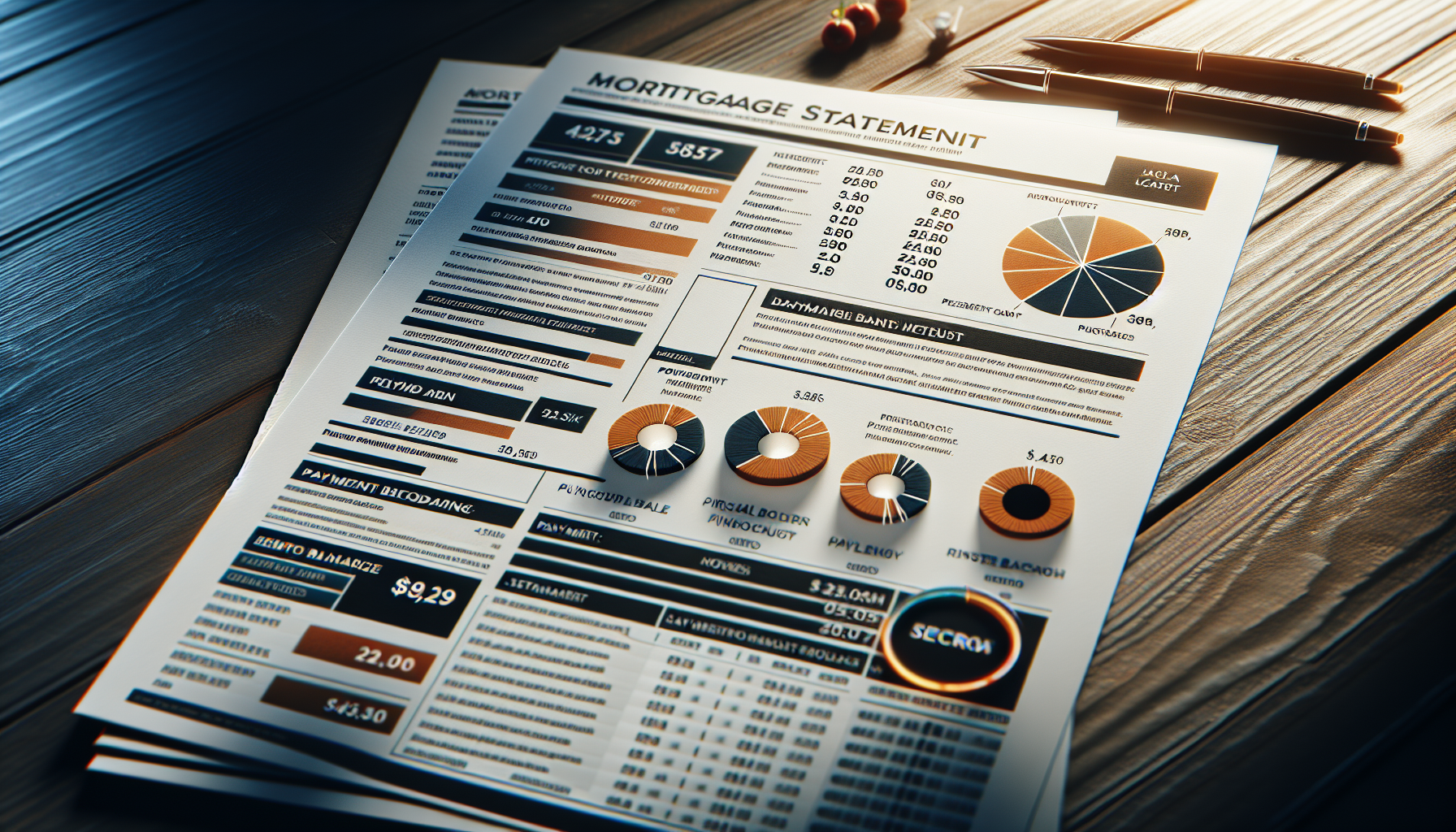When selling a house with a mortgage, one of the most important considerations is understanding when to stop making mortgage payments and how to handle the payoff process. As a homeowner, it’s crucial to navigate this process carefully to ensure a smooth transaction and avoid any potential financial setbacks.
Understanding Your Mortgage Payoff When Selling Your Home
Before listing your home for sale, it’s essential to understand your mortgage payoff amount and the steps involved in settling your loan. This information will help you plan your home sale more effectively and avoid any surprises during the closing process.
Your mortgage payoff amount is the total sum required to pay off your loan entirely, including the remaining principal balance, accrued interest, and any applicable fees. This figure may differ from your current loan balance, as interest accrues daily on most mortgages.
Contacting Your Lender for a Payoff Statement
To obtain an accurate payoff amount, contact your mortgage lender and request a payoff statement. This document will outline the exact amount needed to fully satisfy your loan as of a specific date, usually valid for 10 to 30 days.
When requesting a payoff statement, be prepared to provide your loan account number, property address, and the anticipated closing date of your home sale. Your lender will then generate the payoff statement and send it to you, typically within a few business days.
Reviewing Your Mortgage Terms and Due-on-Sale Clause
Before proceeding with your home sale, it’s crucial to review your mortgage terms and identify any specific requirements related to paying off your loan. Most mortgage agreements include a due-on-sale clause, which stipulates that the loan must be paid in full when the property is sold.
Familiarize yourself with any prepayment penalties or other fees that may apply when paying off your mortgage early. Some lenders may charge a fee for processing the payoff, while others may waive these costs. Understanding these terms will help you plan your finances accordingly and avoid any unexpected expenses.
The Home Selling Process and Your Mortgage
Once you’ve gathered the necessary information about your mortgage payoff, it’s time to focus on the home selling process itself. Working with experienced professionals, such as a real estate agent and a title company, can help ensure a smooth transaction and proper handling of your mortgage payoff.
Working with a Real Estate Agent and Title Company
A knowledgeable real estate agent can guide you through the home selling process, from pricing your property competitively to negotiating with potential buyers. They can also help you understand the financial implications of selling your home, including the impact of your mortgage payoff on your net proceeds.
In addition to a real estate agent, you’ll typically work with a title company or a title agent to facilitate the closing process. The title company’s role is to ensure that the property title is clear and free of any liens or encumbrances, including your mortgage. They will also coordinate with your lender to obtain the payoff statement and ensure that the loan is properly satisfied at closing.
Preparing for Closing and Final Mortgage Payment
As your home sale progresses and you approach the closing date, your real estate agent and title company will work together to prepare the necessary documents and coordinate the final mortgage payment. The payoff amount will be included in the closing costs, and the funds will be disbursed to your lender to satisfy the loan.
It’s important to note that you’ll continue making your regular mortgage payments up until the closing date, as the payoff amount is calculated based on the anticipated closing date. Any overpayment or remaining funds in your escrow account will typically be refunded to you after the loan is fully paid off.
Financial Considerations When Selling a Home with a Mortgage
When selling a home with a mortgage, it’s essential to understand the financial implications and plan accordingly. This includes estimating your net proceeds after paying off your mortgage and accounting for closing costs, as well as considering any potential tax implications.
Estimating Net Proceeds After Mortgage Payoff and Closing Costs
To calculate your estimated net proceeds from the home sale, start with the expected sale price of your property and subtract your mortgage payoff amount. Then, factor in any closing costs, such as real estate agent commissions, title fees, and transfer taxes, which can vary depending on your location and the terms of your sale.
Your real estate agent can provide you with a seller’s net sheet, which itemizes these costs and provides a clearer picture of your anticipated net proceeds. This information will help you plan your finances and make informed decisions throughout the home selling process.
Potential Tax Implications of Home Sale Profits
If your home sale results in a profit, you may be subject to capital gains taxes on the net proceeds. However, the IRS offers a tax exclusion for qualified home sales, allowing you to exclude up to $250,000 of profit for single filers or $500,000 for married couples filing jointly, provided you meet certain criteria.
To qualify for this exclusion, you must have owned and used the property as your primary residence for at least two of the past five years. Consult with a tax professional to determine your eligibility and understand any potential tax implications of your home sale.
Dealing with Negative Equity When Selling Your Home
In some cases, homeowners may find themselves in a negative equity situation, where the outstanding mortgage balance exceeds the current market value of the property. This can present challenges when attempting to sell the home, as the proceeds from the sale may not be sufficient to pay off the loan.
Understanding Short Sales and Their Impact on Your Mortgage
One option for homeowners facing negative equity is to pursue a short sale. In a short sale, the lender agrees to accept a sale price that is less than the outstanding mortgage balance, allowing the homeowner to sell the property and avoid foreclosure.
However, short sales can have significant consequences for your credit score and may result in a deficiency judgment, where you are still responsible for paying the remaining loan balance. Before pursuing a short sale, consult with your lender and a real estate attorney to understand the process and potential ramifications.
Exploring Alternatives to Selling with Negative Equity
If you find yourself in a negative equity situation, it’s essential to explore all available options before deciding to sell your home. Some alternatives may include:
- Waiting for the market to improve: If you’re not in a rush to sell, consider waiting for property values to appreciate, potentially allowing you to build positive equity over time.
- Refinancing your mortgage: If you have a strong credit score and stable income, you may be able to refinance your mortgage to secure a lower interest rate or extend your loan term, making your monthly payments more manageable.
- Renting out your property: If you’re able to find tenants, renting out your home can help you cover your mortgage payments while you wait for the market to improve or explore other options.
Before making a decision, consult with a financial advisor or a real estate professional to evaluate your unique situation and determine the best course of action.
Selling a home with a mortgage requires careful planning and attention to detail. By understanding your mortgage payoff, working with experienced professionals, and considering the financial implications of your sale, you can navigate the process more effectively and achieve your goals. Remember to communicate with your lender, real estate agent, and title company throughout the process to ensure a smooth and successful transaction.
#ED#
See also:
- How Do You Pay Back a Reverse Mortgage? – Bankrate
- How Do I Get My Title After Paying Off My Mortgage? | Steps to Obtain Deed
- What Happens if You Inherit a House with a Reverse Mortgage
- Who Has the Deed to My House If I Have a Mortgage
- What Happens When You Have Quit Claim Deed, But Still On Mortgage | Explained








Leave a Reply